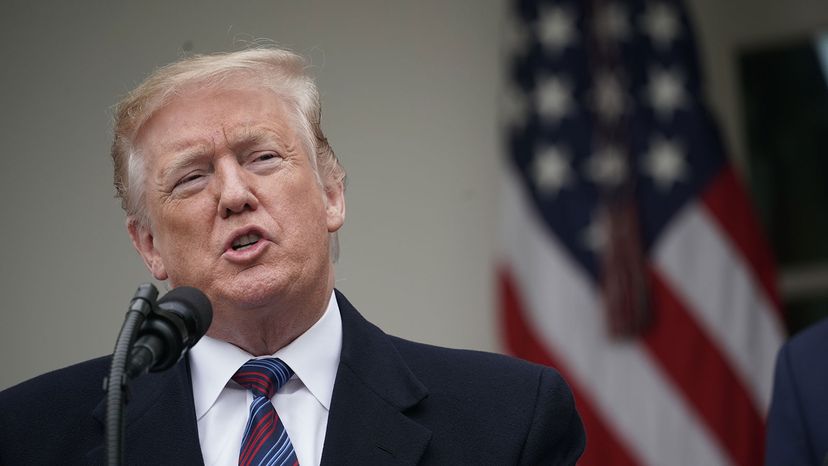
When it's time for the leader of the free world to speak to the nation, the best way to get him in front of the most people is via television. But are the networks required to air every presidential address? Well, it's more complicated than a simple "yes" or "no" answer.
While there's more than one way for a president to get television airtime, telling him to take a hike when the office has made a direct request to broadcasters is embarrassing for everyone involved. Networks look unpatriotic and the president can appear weak. On the other hand, saying yes and providing free airtime can cost millions in lost advertising revenue to networks.
Advertisement
In a typical East Room address, the president takes questions from the press corps on a particular topic the administration would like to address. In each case, networks and their news companies decide whether the issue being addressed is newsworthy, and can broadcast or report on it at their discretion. However, in cases where the president would like to speak to the nation directly, the White House will specifically ask networks to set aside time for the address, usually in the evening when more people are watching television.
It's generally considered good form to agree to a president's official request, but this is where the issue gets murky for whether or not networks must consent. Part of the deal that local broadcast stations make with the Federal Communications Commission is they must prove they are performing some public service in order to continue operating. This includes showing a minimum amount of children's educational programming, as well as agreeing to disseminate information that contributes to public wellbeing, including presidential addresses. When broadcasters fail to uphold their end of the bargain, the FCC can subject them to fines or revoke their licenses.
However, this arrangement doesn't always work well for the networks. While a presidential address is always by definition newsworthy, it almost always airs during primetime when networks have their biggest audiences. Agreeing to the president's request could means a loss of advertising revenue during the most profitable time of day, and sometimes networks choose to protect their bottom line instead.
Networks rarely refuse presidential requests, but it does happen and may even be increasingly common. In 2009 for example, Fox declined to show one of Barack Obama's news conference during primetime, citing that the network would lose too much money in lost advertising revenue. In 2001, the network made the same decision for one of George W. Bush's speeches, despite the White House's request. In 2014, ABC, NBC and CBS all declined to air Obama's November 2014 speech on immigration reform, though none would comment on why.
In January 2019, after some deliberation, the major networks agreed to President Donald Trump's request for eight minutes to address the nation on immigration policy. In response, Democrats requested equal time to respond to a speech they predicted would be full of "malice and misinformation." Most of the major networks agreed to carry the rebuttal as well [sources: Smith, Byers].
Advertisement